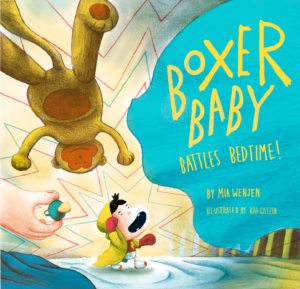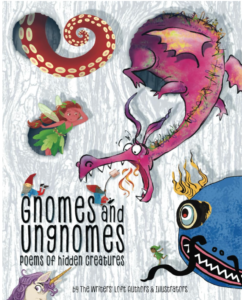For most parents, cultivating a healthy relationship with their adult children can be challenging. Healthy parenting habits and intentional engagement are essential to producing a meaningful connection with your grown kids. If you’re struggling to connect with your adult child, here are nine tips that can help improve your relationship.
Manage your expectations
Some well-meaning parents tend to set unrealistic expectations for their grown children. If you want a strong bond with your adult child, you must accept that they may or may not follow in your footsteps. Embrace their uniqueness and learn to adjust your expectations. Accept that their life goals may differ from yours, and all you can do is support them as best as you can.
Respect each other’s boundaries
One factor that can damage your relationship with your adult child is not respecting their boundaries. No matter how close you are, you need to set ground rules and strictly adhere to them. Avoid visiting them in their place unannounced and try to limit your daily phone calls. Similarly, filter the information you’re sharing with your emerging adult and avoid sharing private conversations you may be having with your spouse or closest friends. If your loved ones are facing this, you can make try on teen residential treatment to help them to recover from this.
Support their decisions
While you don’t want your adult child to repeat your mistakes, you need to let them make their own decisions, even if you don’t necessarily agree with them. Avoid giving your grown child unsolicited advice and let them handle the consequences of their actions. Remember that part of growing up is learning from mistakes, so resist the urge to share your insight no matter how helpful they are.
Communicate with them
Poor communication is one of the common reasons for broken parent-child relationships. Keep your lines of communication open and speak to your adult child appropriately. If they sense that you’re criticizing them, they might feel attacked and sever ties with you completely, so be mindful of your words, tone, and body language.
Empathize with your grown child and acknowledge that their disposition may contradict yours. Converse with them as adults and never invalidate their feelings. To make an amazing bond between yourself and your adult child, you can take the Teen Mental health treatment to make your relationship more beautiful than ever. Creating an environment that will encourage your adult child to actively communicate with you can help foster trust in your relationship.
Schedule a regular bonding date
No matter how busy your schedules are, make a conscious effort to spend meaningful time with your child. Whether it’s going to the gym, learning a new language, watching a concert, attending a musical, or looking for diamond rings for their significant others, find creative and fun ways to bond with your grown child and remember to give them your undivided attention.
Never guilt them
As children move into adulthood, it is natural for them to detach from their parents and crave independence. To avoid driving them further away, refrain from playing the guilt trip card and being the overly attached emotional parent. Remember that your child has the right to their emotional and personal space, so focus on building healthy relationship dynamics and accept that you may no longer be their top priority.
Accept feedback
If you want an honest and meaningful relationship, you must learn to accept feedback without being critical. For instance, your adult child expressed disappointment about a missed standing date or requested that you change your tone during discussions, acknowledge their feelings, and address their concerns immediately. However, if you feel uncomfortable with how they conveyed their sentiments, don’t hesitate to inform them but make sure to do it gracefully and objectively.
Engage in constructive disputes
While parent-child conflicts are normal, unhealthy disagreement habits can negatively influence your relationship. During arguments, avoid yelling at your adult child or giving them the silent treatment. Not only will they respond aggressively, but these harmful practices can cause irreversible damage to your relationship. Instead of lashing out, take a step back and place yourself in your adult child’s shoes so you can see the conflict from their perspective. Avoid being defensive and never belittle their reasoning.
Befriend them
To have a closer relationship with your adult child, you must treat them as you would a trusted friend. Respect their privacy and never divulge their secrets to others. Connect with them on their level so they’ll be more comfortable sharing their intimate thoughts and feelings. If they confide with you, listen with an unbiased and open ear and only offer your opinion when asked. Sometimes all they need is an attentive and sympathetic parent who listens actively without interrupting.
Navigating the parenting transition is no easy feat. With these tips, a positive mindset, and a caring heart, you can successfully build a healthy and harmonious relationship with your emerging adult.
Photo credit: Image by Michelle Raponi from Pixabay
p.s. Related posts:
Healthy Living for Our Elders #AgingWell
How to Prepare to Move Your Aging Parents into Your Home with You
What’s a Skilled Nursing Agency and How Books Can Aid Recovery
To examine any book more closely at Indiebound or Amazon, please click on image of book.
As an Amazon and IndieBound Associate, I earn from qualifying purchases.
My books:
Food for the Future: Sustainable Farms Around the World
- Junior Library Guild Gold selection
- Selected as one of 100 Outstanding Picture Books of 2023 by dPICTUS and featured at the Bologna Children’s Book Fair
- Starred review from School Library Journal
- Chicago Library’s Best of the Best
- Imagination Soup’s 35 Best Nonfiction Books of 2023 for Kids
Amazon / Barefoot Books / Signed or Inscribed by Me











